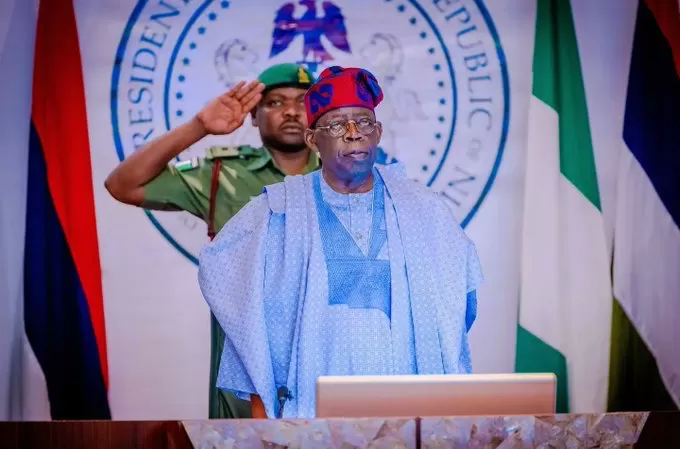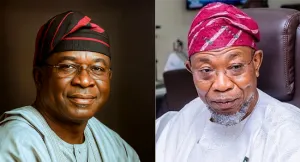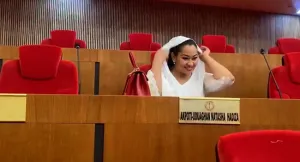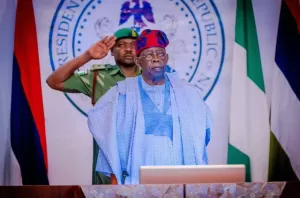President Tinubu Returns to Nigeria After Two-Week Diplomatic Trip to Brazil and Saint Lucia

Abuja, Nigeria – July 13, 2025 – President Bola Ahmed Tinubu returned to Abuja, the Nigerian capital, on the night of Saturday, July 12, 2025, concluding a two-week diplomatic engagement that took him to Saint Lucia and Brazil. The president departed Nigeria on June 28, 2025, embarking on a state visit to Saint Lucia, followed by participation in the 17th BRICS Summit in Rio de Janeiro, Brazil. The trip, described by the presidency as a strategic move to strengthen Nigeria’s global standing, has sparked varied reactions among Nigerians, with some questioning its timing amid pressing domestic challenges.
State Visit to Saint Lucia
President Tinubu’s journey began with a historic state visit to Saint Lucia, a Caribbean nation, where he sought to deepen Nigeria’s ties with the Caribbean region. The visit, which marked a significant step in South-South cooperation, included high-level engagements with Saint Lucian leaders. Tinubu addressed a joint session of the Saint Lucian parliament, a rare honor for a visiting leader, where he emphasized the importance of collaboration in trade, tourism, and education.
During his stay, Tinubu held bilateral talks with Saint Lucia’s Prime Minister, Philip J. Pierre, and Governor-General Cyril Charles. Key outcomes included Nigeria’s commitment to offering scholarships to students from the Organisation of Eastern Caribbean States (OECS) to study in Nigerian universities, fostering educational exchange. In recognition of his contributions to bilateral relations, Tinubu was conferred with the prestigious Knight Commander of the Order of Saint Lucia (KCOSL), a testament to the growing partnership between Nigeria and the Caribbean nation.
The visit also highlighted opportunities for mutual economic growth, with discussions centered on leveraging Nigeria’s expertise in agriculture, energy, and technology to support Saint Lucia’s development goals. Tinubu underscored the shared history and cultural ties between Africa and the Caribbean, advocating for stronger people-to-people connections.
BRICS Summit in Brazil
Following his engagements in Saint Lucia, President Tinubu proceeded to Rio de Janeiro, Brazil, to attend the 17th BRICS Summit from July 6 to 7, 2025. Representing Nigeria as a BRICS partner country, Tinubu used the platform to advocate for global financial reform and climate justice, issues critical to Africa’s development. He highlighted the disproportionate impact of climate change on African nations, despite their minimal contribution to global emissions, and called for increased support from developed nations to address environmental challenges.
In a series of bilateral meetings, Tinubu engaged with Brazilian President Luiz Inácio Lula da Silva to explore avenues for enhancing trade and cultural cooperation between Nigeria and Brazil. The discussions focused on expanding market access for Nigerian goods, particularly in agriculture and solid minerals, and fostering collaboration in education, technology, and renewable energy. The two leaders also explored cultural exchanges, drawing on the shared Afro-Brazilian heritage to strengthen ties.
Tinubu’s participation in the BRICS Summit underscored Nigeria’s growing influence in global economic discussions. He reiterated Nigeria’s commitment to multilateralism and the need for a reformed global financial architecture that prioritizes the interests of developing nations. His contributions were well-received, with several BRICS leaders acknowledging Nigeria’s potential as a key player in the Global South.
Domestic Reactions and Context
While the presidency hailed the trip as a diplomatic success, it has not been without controversy at home. Some Nigerians expressed concerns over the timing of the two-week absence, citing ongoing economic challenges, including inflation, currency fluctuations, and fuel scarcity. Social media platforms, including X, saw debates about the cost of the trip and its relevance amidst domestic priorities. Critics argued that the president’s focus should have been on addressing immediate concerns such as rising food prices and insecurity.
In response, the presidency defended the trip, emphasizing its long-term benefits for Nigeria’s international standing and economic diversification. A statement from the State House described the engagements as “strategic and forward-looking,” aimed at attracting investment and fostering partnerships that would create jobs and opportunities for Nigerians. The presidency also highlighted the scholarships and trade agreements as tangible outcomes of the visit.
Looking Ahead
President Tinubu’s return to Nigeria marks the resumption of his focus on domestic governance, with expectations high for him to address pressing issues. His administration has promised to build on the diplomatic gains from the trip, particularly in securing foreign investment and expanding Nigeria’s trade networks. The scholarships for OECS students are expected to commence in the 2026 academic session, while trade negotiations with Brazil and Saint Lucia are set to continue in the coming months.
As Nigeria navigates its complex socio-economic landscape, Tinubu’s international engagements signal an ambition to position the country as a leader in the Global South. However, balancing these global aspirations with domestic demands will remain a critical challenge for his administration.
For further details on President Tinubu’s international engagements or inquiries about Nigeria’s foreign policy, contact the Ministry of Foreign Affairs or visit the official government website.







